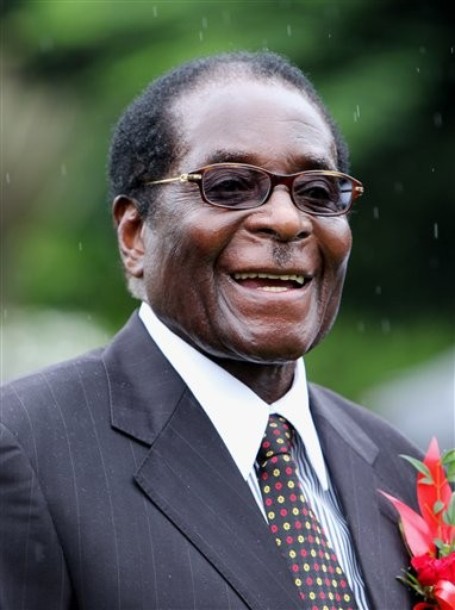
DESPITE thumping its nose at President Robert Mugabe in the July 31 polls, the long-suffering city of Bulawayo is now pinning its hopes of revival on Zanu PF, a party it effectively dumped in 2000.
GAMMA MUDARIKIRI OWN CORRESPONDENT
At his inauguration on Thursday Mugabe referred to Bulawayo as a scrapyard which urgently needed to be cleaned and given a new lease of life during his next five years at the helm of governance.
“Bulawayo was once a thriving industrial hub in the country, but now it has become a sorry industrial scrap-yard,” he said. “Taps are running dry as we have erratic supplies, especially in urban areas and we risk outbreak of diseases. The situation is worse in Bulawayo.”
Bulawayo, saddled with a plethora of chronic challenges, is rubbing its hands in glee hoping the new Mugabe administration would deliver on promises it dangled during the campaign period.
Zanu PF supporters maintain Mugabe has all the answers for the revival of Bulawayo, particularly reversing the city’s de-industrialisation which in the past decade has seen some firms relocating to Harare.
During his campaign, Mugabe dangled 2,265 million jobs across the 14 sectors of the economy as a direct result of unlocking resources from indigenisation and empowerment assets.
His party also pledged reviving the industries in Bulawayo in which it blamed European Union and United States-targeted sanctions for the city’s demise.
- Chamisa under fire over US$120K donation
- Mavhunga puts DeMbare into Chibuku quarterfinals
- Pension funds bet on Cabora Bassa oilfields
- Councils defy govt fire tender directive
Keep Reading
But questions abound whether Mugabe would be able to revive industry and create employment for the multitudes of citizens ekeing out a living in the streets with unemployment nationally estimated at above 80%.
Economic analysts have refuted claims that sanctions are to blame, attributing the decline of the industry to mismanagement and policy misalignment said to be scaring away investors.
“The sanctions are directed at individuals and their business and not the country,” economic analyst Eric Bloch said. “The industrial decline as such cannot be blamed on sanctions.” Bloch is on record calling on the new government to come up with investor-friendly economic policies which he said would attract investment and spruce up economic recovery.
John Robertson, another economic analyst, said it would be impossible for the new government to deliver on its promises and revive industry in Bulawayo without modifying its economic policies.
Robertson said the government must prioritise creating an investor-friendly environment to attract investment and the skills which the country lost during the decade of economic meltdown.
“The government does not have the money or the capacity to revive the industry, but the private sector,” he said. “The best it can do is creating an enabling investor environment.”
Robertson said the government must also consider that it was competing with other countries for the same investment and creating a friendly business environment was key for economic recovery.
The new government has, however, indicated that it will intensify the implementation of the indigenisation policy where foreign-owned firms are required to cede 51% of their shareholding to locals.
Robertson described the policy as “legalised stealing” which he said if not modified would scare away investment. He also called on the government to relink agriculture with the banking sector following a breakdown during the lands reform programme in the 2000.
The agriculture sector is singing the blues chiefly because of lack of financing as the sector cannot access loans from banks because most players do not have lease agreements to use as collateral. The sector is on its knees and as a result the country is importing almost all its food which Roberson said was the reason for scarcity of money in the country.
“We are importing almost every food in the country and where will we get the money to recapitalise local industry and finance our debt to revive the economy,” Robertson said.
Industries in Bulawayo, needs an estimated $73 million to fully revive, but have been battling to attract investment. According to the Confederation of Zimbabwe Industries manufacturing sector survey, industry reduced its capacity utilisation to 44% from 57% as of June this year, as it continues to face a myriad of challenges including subdued foreign direct investments, limited long-term loans and huge energy deficit, among other things.
The Association of Business in Zimbabwe (Abuz) called on the incoming government to prioritise the revival of Bulawayo industries, which the business organisation said this was pinned on coming up with investor-friendly policies.
Abuz chief executive officer Lucky Mlilo said the government should come up with economic policies that would decentralise operations in the business sector to ensure the fast recovery of dysfunctional industries and companies in Bulawayo.
Mlilo said the current business system in the country was too bureaucratic, especially in the banking and procurement sectors and if not modified, would slow industrial recovery down in Bulawayo and other towns. Twitter feedback @mudarikirig










